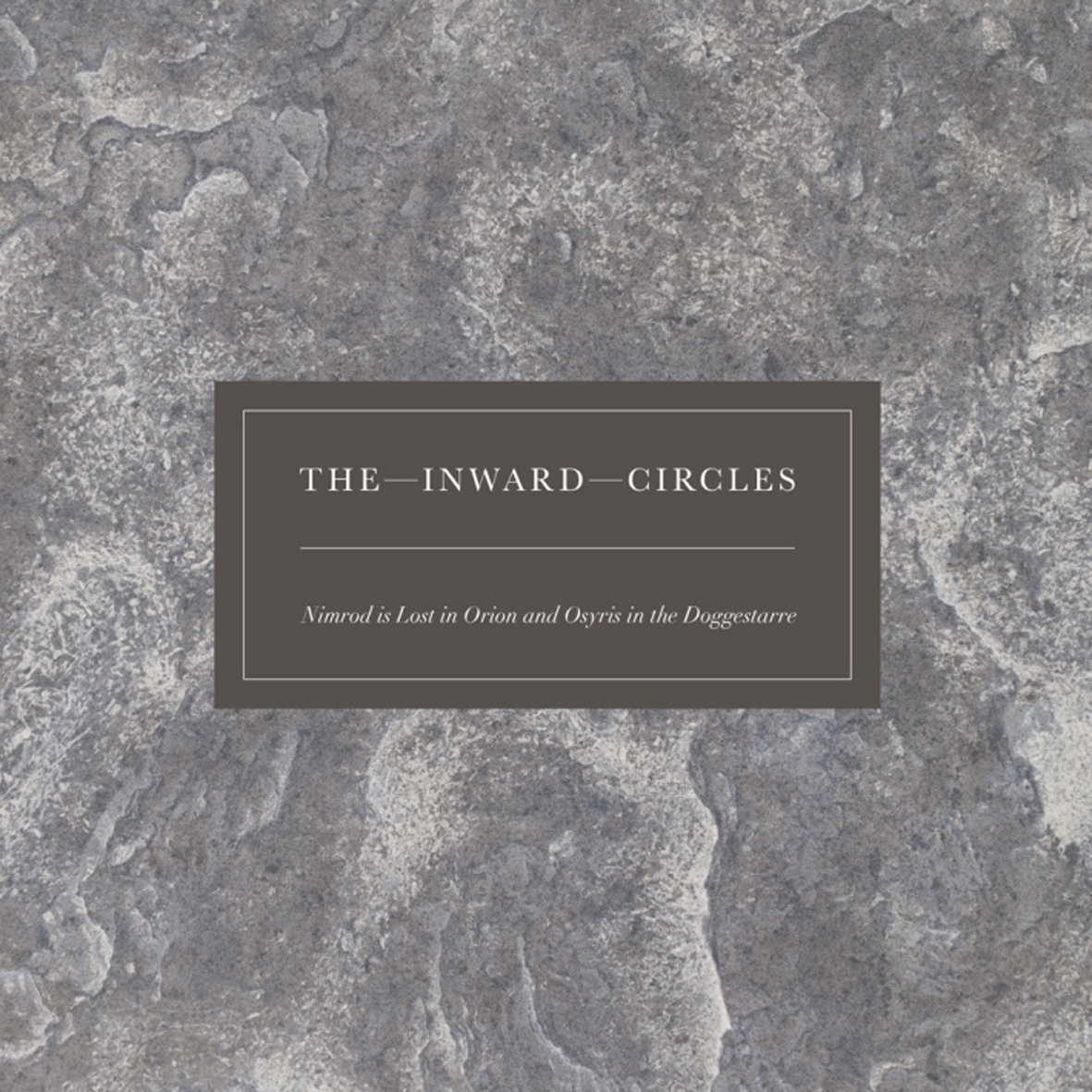The Inward Circles, "Nimrod is Lost in Orion and Osyris in the Doggestarre"

Richard Skelton has a long history of shifting monikers, unusual concepts, and stylistic evolutions, but this latest project still came as a bit of a surprise to me, as it does not particularly sound like a Richard Skelton album at all.  Not at first, anyway.  Rather, it sounds a bit like a warmer variation on classic Lustmord or one of Steve Roach's space-themed albums–a far cry from Skelton's vibrant and organic signature blend of bow-scrapes and rich, shimmering harmonics.  After a few listens, however, it becomes evident that Skelton's aesthetic is still perfectly intact, but has been slowed down and stretched to something approximating geologic time (appropriate, given his well-documented non-musical interests).  While Nimrod is definitely not representative of what Richard historically does best, it is nevertheless a deep and absorbing listen, boasting at least one piece that is probably as great as anything in the space music canon.
There are many aspects of Skelton's artistry that I find endearing, but one of the less obvious ones is that it feels like his recent music is only the tip of an intriguingly cryptic and deeply personal iceberg.  I also appreciate that he only seems to surface these days when he has something new and unusual to say.  Exactly what he is saying, of course, usually remains a pleasant mystery to me, but Richard certainly cannot be faulted for failing to provide enough supporting information.  As with many recent Skelton efforts, Nimrod's music is closely intertwined with text–in this case, an evocative book of re-purposed literary quotations (Da Vinci, Christina Rossetti, Rilke, etc.), close-up photography of bark patterns, and word-collages rooted in detourned forestry documents.  Surprisingly, given the album's title and the actual music, the writings are mostly a fairly earthbound (albeit eclectic) series of meditations on trees, light, shadow, the sea, and solitude.  The album and song titles, on the other hand, are all tied to the writings of English polymath Sir Thomas Browne, so I suspect everything ultimately traces back to him in some way.
Musically, Nimrod generally resembles a Richard Skelton album being played at a much slower speed and deeper pitch.  I have no clue how the album was constructed, but there is little that can be readily identified as violin or bowed guitar, though the sounds could have certainly originated from either (and then been laptopped into unrecognizability).  In a more specific sense, most of Nimrod sounds like warm, layered, slow-moving drone swells made from a cello or double-bass.  That is certainly pleasant, but the album's best pieces merely use that as the starting point for something a bit more unique and mesmerizing.  "Ancient Arithmetic of the Hand," for example, augments its dreamy thrum with a ghostly, quavering haze and a deep, insistent throb, while "Glimpses Of The Empyreal Light" sounds like an older-style Skelton piece beset by ominous, subterranean shudders.
Nimrod's two highlights are even more radical in their transformation of Skelton's aesthetic.  "Two Opposed Leaves At The Root" is the album's masterpiece, weirdly reminding me of Aphex Twin's wheezing, lurching NIN remix (in name, at least) "At The Heart Of It All," which is not at all something I would normally expect to be referencing in regards to a Richard Skelton album.  Remarkably, Skelton manages to one-up Richard James though, as the pulse of "Two Leaves" transcends mere rhythm to sound like something enormous and metal being endlessly bent and crushed by powerful exterior forces.  I have never heard anything else quite like it and it is absolutely beautiful in its context.  "And In Their Groves Of The Sun This Was A Fit Number" is not quite that stunning or unique, but works on a similarly grand scale.  In fact, there is even some similar crunching, but it is quite distant and strangely soothing as it is slowly enveloped by the piece's warm, engulfing roar.
I would not necessarily say that there are any weak pieces at all on Nimrod, but the album’s lengthiest work ("An Art to Make Dust of All Things") seems comparatively uninspired to me, as its cold emptiness and deep metallic swells seem too much like the territory of previous space-minded ambient artists without any substantial improvement upon the formula (though it was bit surprising to hear a (buried) percussion loop).  It is a perfectly fine piece, but it just does not feel like it belongs on this particular album by this particular artist.  In all other respects, however, Nimrod is an absolutely wonderful, beautifully realized, and unexpected album (and "Two Leaves" is easily one of the finest pieces in Skelton's entire discography).
- An Art to Make Dust of All Things
- Two Opposed Leaves at the Root
- And in their Groves of the Sun This Was a Fit Number
 



